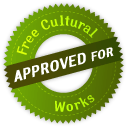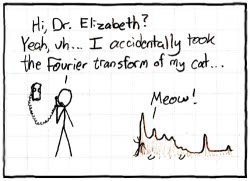
Sorry Leute, dass ich still war die letzten Monate, der Kampf geht weiter, ich bin weiterhin dabei!

Sorry Leute, dass ich still war die letzten Monate, der Kampf geht weiter, ich bin weiterhin dabei!
The following TED-Talk of law professor Yochai Benkler is an older one (July 2005), but it was just released and is, of course, yet interesting. Yochai Benkler explains how collaborative projects like Wikipedia and Linux represent the next stage of human organization. By disrupting traditional economic production, copyright law and established competition, they’re paving the way for a new set of economic laws, where empowered individuals are put on a level playing field with industry giants.
 Oekonux and P2P-Foundation are preparing a common conference in March 2009 in Manchester, UK. The founder of P2P-Foundation, Michel Bauwens, was born in Belgium and is now living in Thailand. He is a busy traveller and promoter of the concept of a »P2P political economy«. The italian researcher Cosma Orsi made an extensive interview with Michel, where he adopted some parts from Peerconomy and germ form theory.
Oekonux and P2P-Foundation are preparing a common conference in March 2009 in Manchester, UK. The founder of P2P-Foundation, Michel Bauwens, was born in Belgium and is now living in Thailand. He is a busy traveller and promoter of the concept of a »P2P political economy«. The italian researcher Cosma Orsi made an extensive interview with Michel, where he adopted some parts from Peerconomy and germ form theory.
Here are some interesting snippets.
 [EN] This day shall increase the awareness about the importance of open document standards. Open document standards are digital equivalents to the pens of the paper world: Every pen should work on every paper. However, this is not the case for document formats. Not every document application work on every document data format, if the data format is not openly defined and standardized.
[EN] This day shall increase the awareness about the importance of open document standards. Open document standards are digital equivalents to the pens of the paper world: Every pen should work on every paper. However, this is not the case for document formats. Not every document application work on every document data format, if the data format is not openly defined and standardized.
Today the world is dominated by proprietary formats. However, there is an alternative, the open document format:
ODF (OpenDocument Format) is an ISO standard created with the aim to provide an open XML-based document file format for office applications to be used for documents containing text, spreadsheets, charts, and graphical elements. ODF is defined via an open and transparent process at OASIS and has been approved unanimously by the International Organization for Standardization (ISO) and the International Electrotechnical Commission (IEC) as an international standard in May 2006. Instead of trying to reinvent the wheel ODF reuses established standards like HTML, SVG, XSL, SMIL, XLink, XForms, MathML, and Dublin Core. (src)
The demand for openess and standardization is also heard by monopolists like Microsoft. Although ODF standard already exists, Microsoft created its own »open« standard OOXML and tries to become standardized by using a lot of dirty tricks. Thus, Microsoft’s OOXML should be disapproved — read 20 good reasons.
Free your office from proprietary formats, use free software on open document formats!
[DE] (mehr …)
[This is a translation of a German article by Stefan Meretz, also discussed on keimform.de (in german: 1|2|3|4). The article has been published in the magazines »Streifzüge« (issue 40/2007) and »Contraste« (issue 2/2007). Translation was done by Stefan Merten — many thanks!]
In issue 31 of the magazine krisis, Ernst Lohoff published a very interesting article. Title: »Der Wert des Wissens. Grundlagen einer politischen Ökonomie des Informationskapitalismus« (»The value of knowledge. Fundamentals of a political economy of the information capitalism«). It discusses the question whether digital information goods are commodities and whether they represent value substance (»Wertsubstanz«). Lohoff’s answer: They are neither commodities nor in an economical sense do they contain value. Here are the arguments in a short form.
We’ve just received an email from Tere Vadén:
We have just published an open access book entitled Wikiworld — Political Economy and the Promise of Participatory Media. We hope that you find it of interest in your work; Oekonux is discussed in the last chapter of the book. Please feel free to download and link the book.
WIKIWORLD. Political Economy and the Promise of Participatory Media
In the digital world of learning there is a progressive transformation from the institutionalized and individualized forms of learning to open learning and collaboration. The book provides a view on the use of new technologies and learning practices in furthering socially just futures, while at the same time paying critical attention to the constants, or »unmoved movers« of the information society development; the West and Capitalism. The essential issue in the Wikiworld is one of freedom — levels and kinds of freedom. Our message is clear: we write for the radical openness of education for all.
In solidarity,
Juha Suoranta & Tere Vadén
 [EN] The Creative Commons project added a new seal to their licences, indicating more clearly, which works are conform to the »freedom« as defined in Free Software. This seal qualifies the Attribution and Attribution-ShareAlike licenses as Free Culture Licenses according to the Definition of Free Cultural Works. This implies, that the weaker CC-licences (with non-commercial or no-derivative clauses) are not Free Culture Licenses in the sense of Free Software.
[EN] The Creative Commons project added a new seal to their licences, indicating more clearly, which works are conform to the »freedom« as defined in Free Software. This seal qualifies the Attribution and Attribution-ShareAlike licenses as Free Culture Licenses according to the Definition of Free Cultural Works. This implies, that the weaker CC-licences (with non-commercial or no-derivative clauses) are not Free Culture Licenses in the sense of Free Software.
[DE] Das Creative-Commons-Projekt hat ihren Lizenzen ein neues Siegel hinzugefügt, dass klarer als früher anzeigt, welche Werke mit der »Freiheit« wie sie in Freier Software definiert ist, übereinstimmen. Dieses Siegel qualifiziert die Namensnennung– und Weitergabe-unter-gleichen-Bedingungen-Lizenzen als Freie Kultur-Lizenzen entsprechend der Definition für Freie Kulturelle Werke. Das schließt ein, dass die schwächeren CC-Lizenzen (mit Klauseln »nicht-kommerziell« oder »keine-Bearbeitung«) keine Freien Kultur-Lizenzen im Sinne Freier Software sind.
 [Es gibt eine deutsche Übersetzung dieses Artikels]
[Es gibt eine deutsche Übersetzung dieses Artikels]
On the Oekonux-Mailinglist there is an interesting debate about the relationship between private ownership and societal change, especially when it comes to commons based production of physical goods. Raoul Victor from France wrote:
The original question is how to deal with the ownership transformation when it concerns material means of production. I insisted on the fact that, at one moment or another (probably many years ahead), this will lead to a general social confrontation with capitalism, where „the workers of the world“ will play a major role, the germs of peer production practices, mainly in the freely reproducible goods domain, having played an important role in the evolution of their consciousness. This confrontation is inevitable because of the nature of capitalism itself.
This is my answer:
 [Diesen Artikel gibt es noch nicht auf Deutsch. Wenn du dazu beitragen willst, das zu ändert, beteilige dich bitte an der Übersetzungs-Werkstatt.]
[Diesen Artikel gibt es noch nicht auf Deutsch. Wenn du dazu beitragen willst, das zu ändert, beteilige dich bitte an der Übersetzungs-Werkstatt.]
Previous part: Commons and Possession
We have seen that it is indeed possible to generalize peer production to material production in such a way that its essential traits—it is based on contributions, on free cooperation, and on commons and possession—are preserved. So far, peer production has been largely limited to the immaterial sphere of information goods, but this limitation is not essential and might sooner or later disappear.
At this point, the reader might be inclined to ask: So what? So we can either have an economy based on markets (a market economy, a.k.a. capitalism) or an economy based on peer production (a peer economy), but, in the end: what difference would it make?
 [Diesen Artikel gibt es noch nicht auf Deutsch. Wenn du dazu beitragen willst, das zu ändert, beteilige dich bitte an der Übersetzungs-Werkstatt.]
[Diesen Artikel gibt es noch nicht auf Deutsch. Wenn du dazu beitragen willst, das zu ändert, beteilige dich bitte an der Übersetzungs-Werkstatt.]
Previous part: Free Cooperation.
Peer production is based on commons and possession, not on property. As long as you use something (by yourself), there is no obvious difference between possession and property. The difference only becomes visible when you stop using it: your property still remains your property, allowing you to sell it to someone else (in return for money or some other equivalent). But possession is bound to usage—if you no longer need something, you cease possessing it and somebody else can start possessing it.
One issue where this becomes relevant is the question of long-term vs. short-term usage. When projects expect people to make contributions in order to get the things they want, there are cases where the length of usage should be taken into account. Otherwise, people who want to use something for a limited period of time would be put at a serious disadvantage, since they would have to contribute just as much as if they wanted to use it “forever.” When the expected “lifespan” of a good exceeds the expected time of usage by any given person, it might thus be appropriate to tie the required contributions to the length of usage, sharing the overall effort between all who use it over time. For example, a project or local association organizing housing for its members might prefer to require contributions for living in a house or apartment for a certain amount of time (instead of for living there forever), thus spreading the effort necessary for building and maintaining houses among all the people who live there over time.
The difference between property and possession is also relevant for the problem of resource allocation. In an economy where everything is based on commons and possession instead of property, it would not make sense to treat natural resources as property—to rely on buying and selling to allocate them. In fact, it would not even be possible: if nothing apart from resources is sold, how should those who lack them be able to buy them?